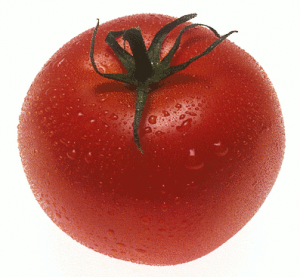Echinacea vindicated
September 26, 2007 by AnnA
Filed under featured, Health, Natural Medicine
It’s a winter regular, the first sign of cold weather and I head for the Echinacea tincture to strengthen my immune system through the winter. Herbalists and anecdotal evidence has long believed that Echinacea is very effective at warding off colds and now there is further proof from scientists at the University of Connecticut School of Pharmacy. They have not identified the precise mechanism by which it does this, but the study revealed that although the common cold is caused by 200 different viruses, Echinacea usage showed consistent reduction in the chances of catching a cold by up to 58%. Their findings came from reviewing the results of 14 separate clinical trials and found that Echinacea not only helped prevent colds, it also reduced the length of an established cold by a day and a half. Time for me to take my tincture!
Killer diet for rheumatoid arthritis?
September 19, 2007 by AnnA
Filed under Drugs & Medication, featured, Food & Nutrition, Health, Healthy Ageing, Mental Health, Natural Medicine
First on the hit list are tomatoes, maybe not killers exactly but if you suffer from arthritis they are certainly to be avoided. They are among a group of foods that trigger inflammation and general discomfort because they contain solanine, an alkaloid that is known for its toxicity. Other foods that are high in solanine are potatoes, aubergines and peppers, all of which you might know better as the nightshade plant family. The solanine is found in their leaves and roots and its purpose is to provide natural protection against insects for the plant. When we eat those foods the solanine is neutralized in the intestine, but because of their ability to trigger joint pain, some researchers believe that arthritis patients may not be able to adequately process the solanine and so it is still toxic in their system.
If you suffer from arthritis then you know that dietary solutions can be very helpful for some people, so that taking all the nightshade family out of the equation can be beneficial. Unfortunately this does not make any difference at all to other people with arthritis and that it is another factor entirely that causes the most problems. An excellent book by Patrick Holford called Say No to Arthritis made this point many years ago, and pointed out that certain foods can increase the severity of rheumatoid arthritis symptoms and these include milk, pork, red meat, cod, eggs and cereal. This is now confirmed by research done in Norway and Sweden, which has shown that certain people may be predisposed to develop rheumatoid arthritis when their diet includes plenty of high-protein foods. If you do suffer from this painful condition then an investigation into what foods affect you might well be very beneficial, and the book I just mentioned is a good place to start with that.
ADHD drugs and risk of heart disease
September 17, 2007 by AnnA
Filed under Childrens Health, Drugs & Medication, featured, Health, Healthy Ageing, Mens Health, Mental Health, Natural Medicine, Womens Health
The number of children on anti depressants and other behaviour altering drugs has quadrupled in the last ten years. In 2005 GP’s wrote more than 631,000 prescriptions for drugs such as Prozac to under 16′s as against 146,00 in the mid 1990′s. This disturbing trend sees drugs being the first line in the situation instead of other options such as counselling which might be more appropriate. In line with the fact that the use of Ritalin to control stress and aggressive behaviour in children has also increased tenfold in the same period, there is a timely study being undertaken in the USA to look at the potential heart risks from medicines used to treat attention deficit hyperactivity disorder (ADHD).
The U.S. Food and Drug Administration, in collaboration with the Agency for Healthcare Research and Quality, will examine clinical data of about 500,000 children and adults who have taken ADHD drugs, including Ritalin. The analysis is expected to take about two years and will include all drugs currently marketed for treating ADHD. There are millions of people taking these medicines worldwide and it is known they can increase heart rate and blood pressure, and this has raised concerns they may therefore raise the risk of heart attacks, strokes or other cardiovascular problems. There have been cases reported of heart problems in both adults and children who receive drug treatment for ADHD, but these patients have had known underlying risk factors. What is not known is whether or not these events are directly related to the drug treatment and the study hopes to get further information to protect from potential risks from heart disease.





